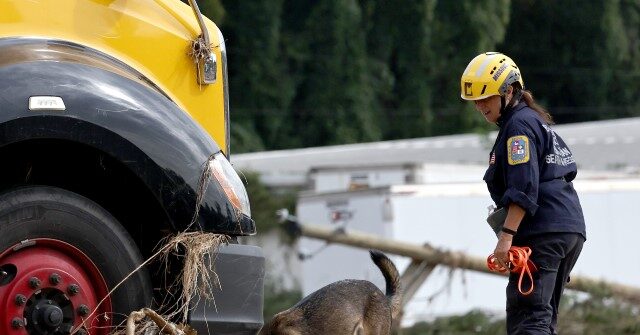Hurricane Helene has wrought devastation across the southeastern United States, claiming over 220 lives and resulting in hundreds of missing persons cases that are potentially turning into body recoveries. As the aftermath unfolds, significant numbers of individuals remain unaccounted for, with 75 open cases reported in Asheville, North Carolina alone. The emotional turmoil surrounding the loss and uncertainty has been captured in the stories of those who witnessed the disaster and the families still searching for their loved ones. The grim realities faced by these families underscore the chaos wrought by the flooding, which took many by surprise and left them fighting for survival.
Among the lost is Julie Le Roux, who went missing during the catastrophic flooding. Her fiancée, Jonathan Norwood, described the horrifying events when the waters rushed through a friend’s home. Norwood himself experienced the turmoil first-hand, injuring his legs as he was swept away, and desperately searched for Le Roux amidst the debris. Tragically, her body was later discovered, prompting an outpouring of grief from family and friends who remembered her as a vibrant artist with an infectious spirit. In light of Le Roux’s death, the dire situation for many other families still waiting for news about their loved ones only seems to deepen.
The missing persons list includes names like Rosa Maria Andrade Reynoso and Steven Cloyd, whose families have shared harrowing accounts of their final moments. Reynoso, a young mother, reached out to her cousin Carina Alonso as the floodwaters surged, realizing she was in grave danger without swimming skills. Employees at Impact Plastics, where Reynoso worked, faced significant backlash as six workers were swept away following the water’s rapid rise. The tragic incidents serve as a reminder that, even with evacuation efforts, many were unable to escape in time.
Steven Cloyd, who was last heard from when his mother alerted him about his father in danger, has also been missing since the storm. His son describes him as a caring individual who would go out of his way to help others. In contrast, the story of Kim Ashby, a dedicated teacher, and her husband Rod, emphasizes the harrowing nature of the floods. Despite Rod’s meticulous planning to elevate their home above flood levels, the unexpected intensity of the storm overwhelmed their shelter, leading to an immediate evacuation that ended in tragedy when they were separated in the chaos. Rod’s desperate efforts to save his family encapsulate the instinct to protect loved ones amidst unforeseen circumstances.
The sense of helplessness is further illustrated through the plight of Omar Khan, who was last seen stranded on a balcony, pleading for help. His wife, Zubila Shafiq, shared his final text message, echoing a poignant sentiment to their children amidst the confusion of the emergency. Shafiq’s relentless pursuit for any sign of Khan reflects the undying hope that persists in the face of uncertainty, highlighting the human spirit’s resilience. Despite the diminishing possibility of finding survivors, she continues to search, embodying the determination that defines many families grappling with similar tragedies.
Lyn McFarland’s case exemplifies the agony of waiting with little information about a missing loved one. A neighbor recalled seeing McFarland on the roof with his dog, only to lose sight of him as the water swept his home away. Relatives hold onto a flicker of hope that McFarland may be safe but unable to communicate. This sentiment resonates throughout the affected communities, with families clinging to hope while grappling with an overwhelming sense of despair. For them, each day of uncertainty brings added emotional burden, making recovery and healing following such a disaster feel nearly insurmountable.
As rescue efforts continue, the pain of loss and uncertainty lingers, drawing attention to the lives impacted by Hurricane Helene. The stories of those missing reflect the broader societal tragedy imposed by natural disasters, revealing not only the inadequacies in preparedness but the profound emotional toll it takes on communities. With numerous individuals still unaccounted for, the search for answers persists. Families and friends remain dedicated to keeping hope alive, reflecting the courage and resilience that often emerges amidst overwhelming grief and devastation. It’s a collective human response to tragedy that underscores the importance of community, connection, and compassion in times of crisis, as they navigate the aftermath of the hurricane and hold each other up through the pain of loss.

